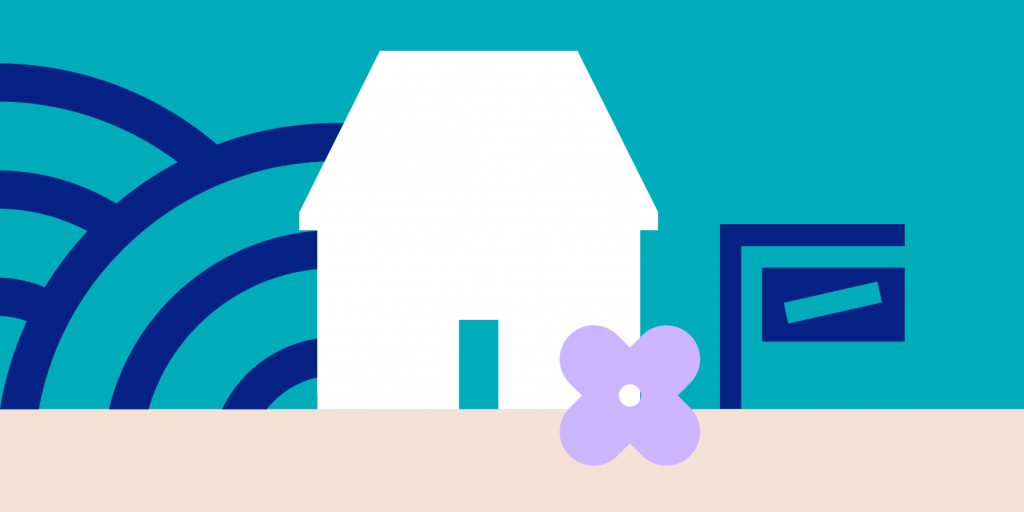From the beginning of the home buying process, you probably knew your goal was to end up closing on a house. But once your offer is accepted and you realize that day is coming, it’s pretty common to wonder what closing on a home is really all about. From how you get there to what you need to bring, here’s everything you need to know about closing on a house.
-
Closing on a home is an appointment where you officially purchase the property.
On closing day, aka settlement day, you’re signing off on all the home purchase paperwork. This includes signing your mortgage documents, approving any repairs mandated by the home inspection, and paying your down payment and closing costs (which run between 2 and 5 percent of the home’s purchase price).
-
It takes around 40 days before you can close on a home.
That’s a long time, but it typically takes weeks get everything ready for you to close on a home on your scheduled day. That’s because both you and your mortgage lender have a lot to do before the final paperwork is ready for your signature.
Your tasks will include:
- Have a home inspection. As soon as your office is accepted and you’re “under contract” to purchase your home, have a home inspector go through the house.
- Renegotiate or have a seller fix problems. If your home inspector finds a dealbreaker, like a cracking foundation, you might walk away from the deal. If you find issues that are costly but fixable—like a damaged section of roof or a plumbing issue—you may ask the seller to fix them before you close or lower the price so you can afford to fix them later.
- Do a final walkthrough. Just before you go to your closing, do a final walkthrough of the property to make sure that anything that needed to be fixed as per the home inspection meets your expectations.
- Transfer utilities to your name. This doesn’t happen automatically. Get in touch with the utility companies well in advance of your closing day. You don’t want to be in the dark on moving day.
- Purchase homeowner’s insurance. Homeowner’s insurance protects your property against theft and damage caused by nature—and your lender will require it before closing.
Your mortgage lender will be up to:
- Processing your loan. They’ll be reviewing your full application and making sure all of your financial information checks out. They may ask you for additional documentation of your financial history during this time.
- Awaiting your home appraisal. Your home appraisal will confirm that the value of the home is not less than the amount they’re lending you.
-
Closing near the end of the month is smart.
Try to get a closing date closer to the end of the month. The date will affect when your first mortgage payment is due and the amount of interest you’ll have to pay at closing. Your mortgage payment always covers the previous month, but your bank wants you to pay interest for any days you own the home in the current month. For example, if you close on June 29, your first mortgage payment (which will cover July) will be due August 1, and you only have to pay one day’s worth of interest (for June 30).
-
You want to know what the paperwork will say before closing.
There will be lots of paperwork in front of you on closing day, and not enough time to read them all. Work closely with your real estate agent, lender, and attorney, if you have one, to get all the documents you need ahead of time.
The most important thing to read is the closing disclosure, which shows your loan terms, final closing costs, and any outstanding fees. You’ll get this form about three days before closing since, once you (the borrower) sign it, there’s a three-day waiting period before you can sign the mortgage loan docs. If you have any questions about the numbers or what any of the mortgage terms mean, this is the time to ask—your real estate agent is a great resource for getting you all the answers you need.
-
Your closing appointment takes a few hours.
Once the closing date is set, schedule at least half a day for your meeting. There will be a lot of papers to review, initial, and sign. You’ve been waiting weeks for this day, so you want to give yourself plenty of time to be there promptly and prepared.
-
You’ll need to bring a few things to closing.
Here’s what you need to bring to your closing appointment:
- Your down payment in the form of a cashier’s check or wire transfer. You’ll learn the exact amount before the closing.
- Your checkbook—in case there are last-minute additions to fees
- Personal identification, such as a driver’s license or passport
- All the paperwork you’ve received and reviewed to make sure what you’re about to sign is as expected
-
A few different people will attend your closing.
Every state has different rules—for example, the seller may not have to be present at closing—but some arrangement of the following individuals will meet you at the closing table:
- An attorney—the lender’s and yours if you have one
- Title company representative
- Seller’s real estate agent
- Your real estate agent
- Your mortgage lender
-
You’ll sign many, many documents.
Get your pen ready. Here’s what you can expect to sign while closing on a house.
- Loan estimate information. This outlines your loan, terms, rates, and closing costs (origination fees, points, appraisal fees etc.)
- Closing disclosure. You’ve had a chance to review this beforehand. It’s a form that outlines the terms and costs of your mortgage.
- Initial escrow statement. Basically, escrow is a third-party account that holds your money until the deal is done. At closing, many buyers have to pay money for future taxes and insurance up front. This money sits in an escrow account during the first year of your mortgage until the mortgage company uses them to pay those bills.
- Mortgage note. This document is your promise to repay your lender and has information on what the lender can do if you don’t pay.
Mortgage or deed of trust. Secures the loan and lets your lender know they can make claims against the home if you don’t live up to the agreed upon mortgage terms.
-
After you close, you’re a homeowner.
Sure, your mortgage lender may have the largest financial stake in your home, but after you sign those documents, you are the homeowner. Once those keys are in your hands, you’re no longer closing on a home, you’re starting your life as a homeowner.
Now that you know what to expect when closing on a home, it’s time to understand all the details. We’ll guide you through how home appraisals work next.



